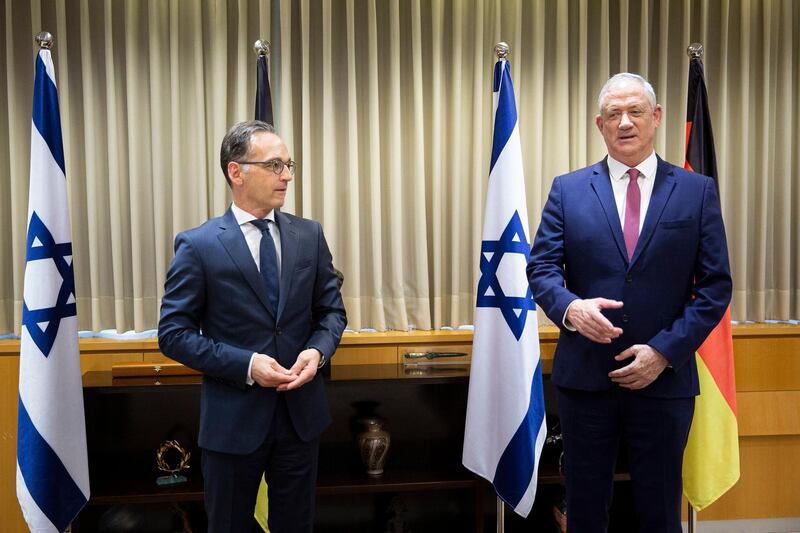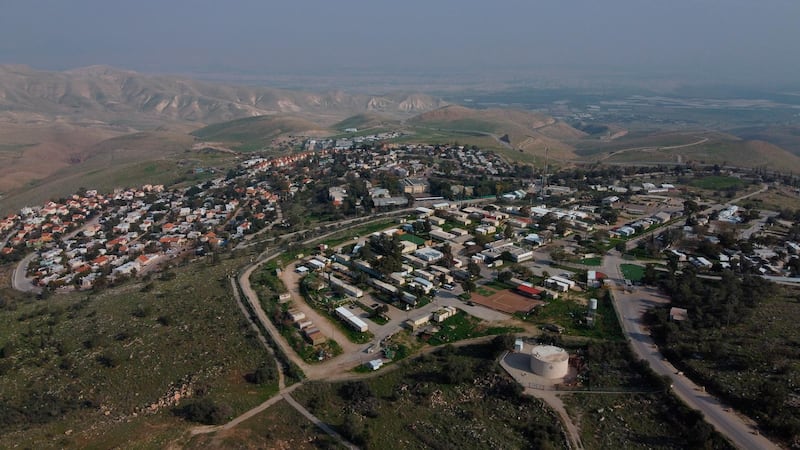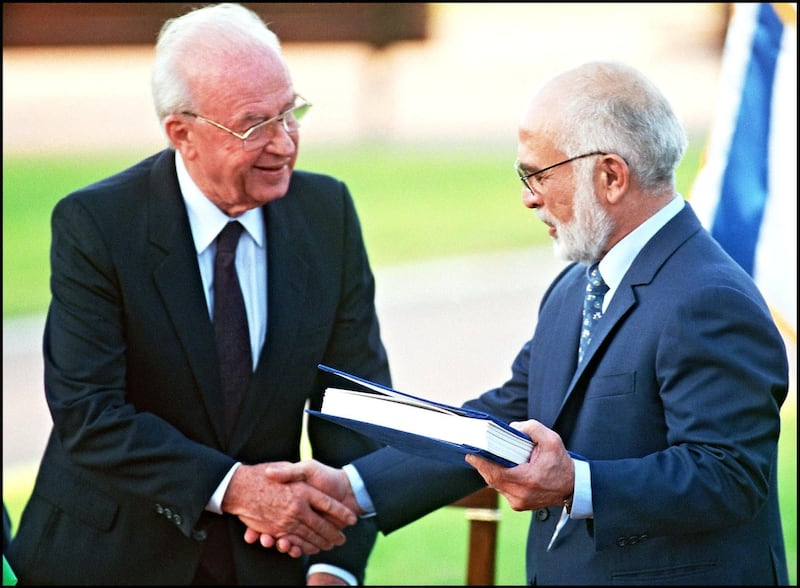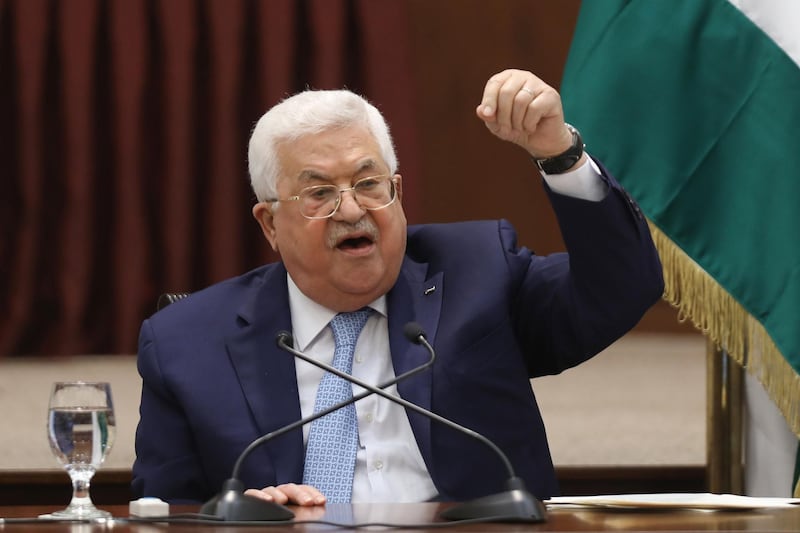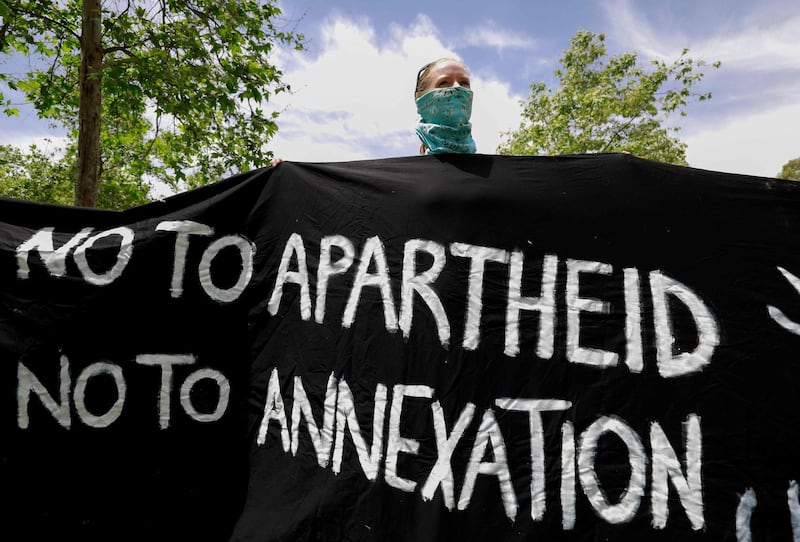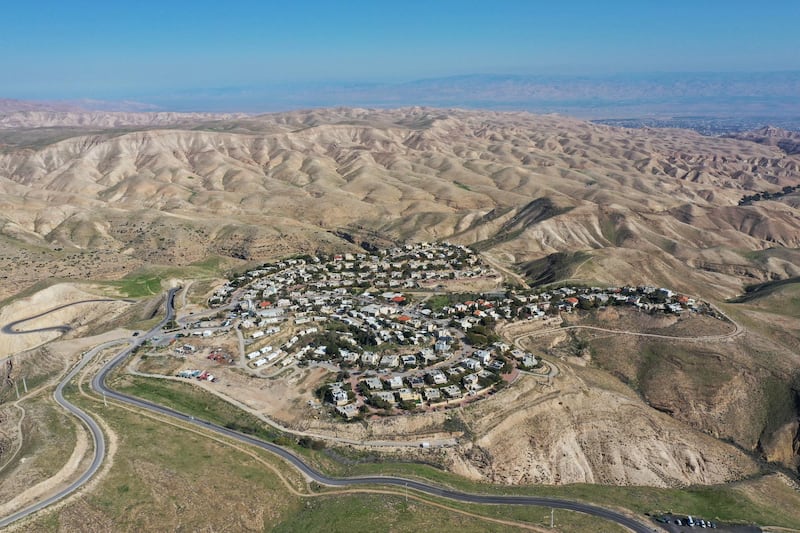German Foreign Minister Heiko Maas on Wednesday restated his government's view that Israel’s plans to annex parts of the occupied West Bank were illegal, but stopped short of threatening sanctions.
Mr Maas was speaking on a one-day trip to Israel to meet Prime Minister Benjamin Netanyahu, Foreign Minister Gabi Ashkenazi and Defence Minister Benny Gantz.
Israel’s new unity government next month intends to begin discussing annexation of its settlements in occupied land that Palestinians claim for a future independent state.
The plan has been criticised by Arab and European powers as likely to kill off a two-state solution to the Middle East conflict.
Israel says annexation would be in keeping with a plan announced by US President Donald Trump in Washington in January.
“I repeated here today the German position, as well as our serious concerns as a special friend of Israel of the possible consequences of such a step,” Mr Maas said alongside Mr Ashkenazi.
“We share these views with our European partners, and we are of the view that an annexation would not be compatible with international law, and we therefore continue to stand for an agreed and negotiated two-state solution.
“And to get closer to the goal of a negotiated agreement, it needs new creative impulses to revive talks.”
Mr Maas later met Mr Netanyahu, who told him any “realistic plan must recognise the reality of Israeli settlement in the territory and not foster the illusion of uprooting people from their homes”, the prime minister's office said.
It made no direct mention of annexation But it said Mr Netanyahu spoke of ensuring Israel’s “vital interests”, such as maintaining “full security control” over the West Bank.
Mr Maas will travel from Israel to Amman for separate talks with Jordanian officials and Palestinian leaders.
Last September, Germany was one of five European nations to say annexation would constitute a serious breach of international law.
“I did not set any price tags,” he said on Wednesday about whether he had discussed the EU imposing sanctions on Israel.
Palestinian-Israeli talks aimed at agreeing on a two-state solution collapsed in 2014.
Palestinian leaders have since boycotted the Trump administration over its perceived bias towards Israel.
Washington’s proposal envisages a Palestinian state in up to 70 per cent of the West Bank, but with overall Israeli security control.
Palestinians say that would leave them with an unviable country.
Palestinian Foreign Minister, Riyad Al Maliki, on Wednesday called on countries to form an international front to isolate “the Israeli colonial system”.
Speaking to an online meeting of the Organisation of Islamic Co-operation, he urged countries to boycott Israel, ban its products, and impose economic and political sanctions.
On Tuesday, Palestinian officials sent top mediators, including the UN, a response to the US peace plan.
The proposal demands the creation of a sovereign Palestinian state, independent and demilitarised, and some minor border changes.
The Palestinian Prime Minister, Mohammed Shtayyeh, said it was sent "a few days ago" to the UN, US, EU and Russia, which were mediating in the Palestinian-Israeli conflict.
Most countries regard settlements that Israel built on land captured in the 1967 Middle East war as illegal.
